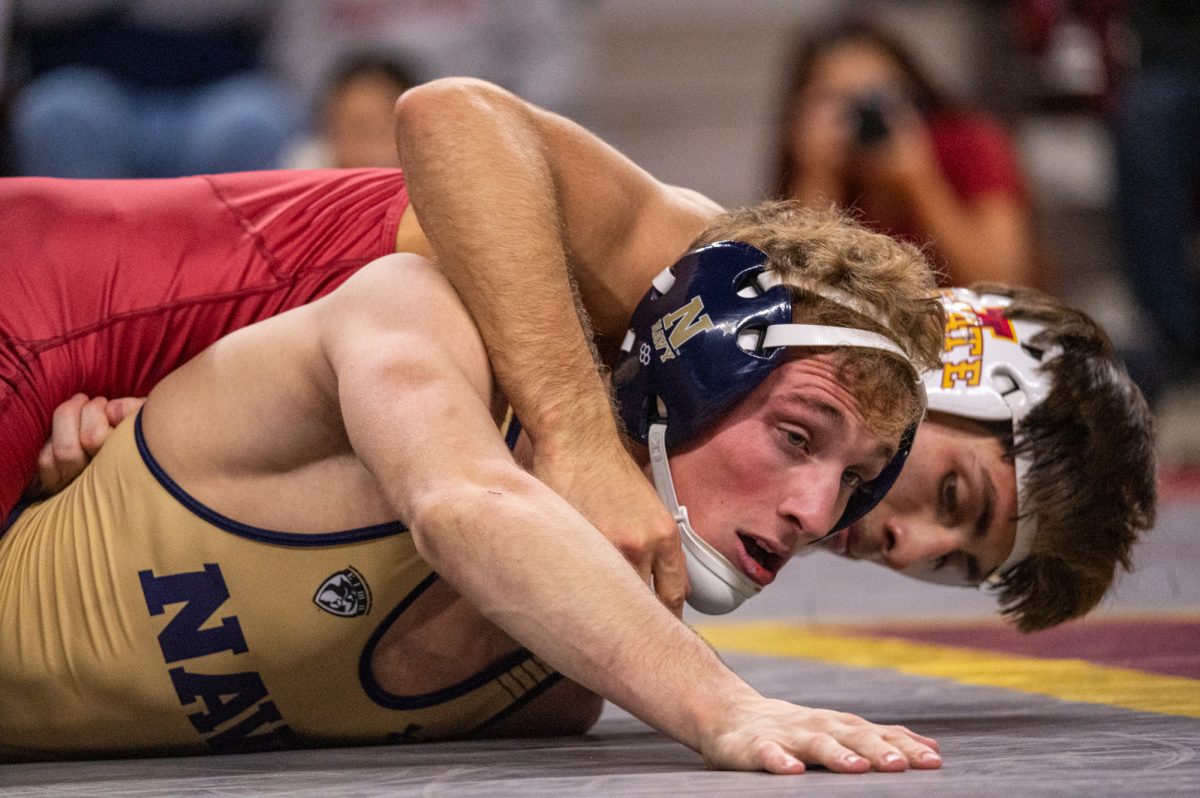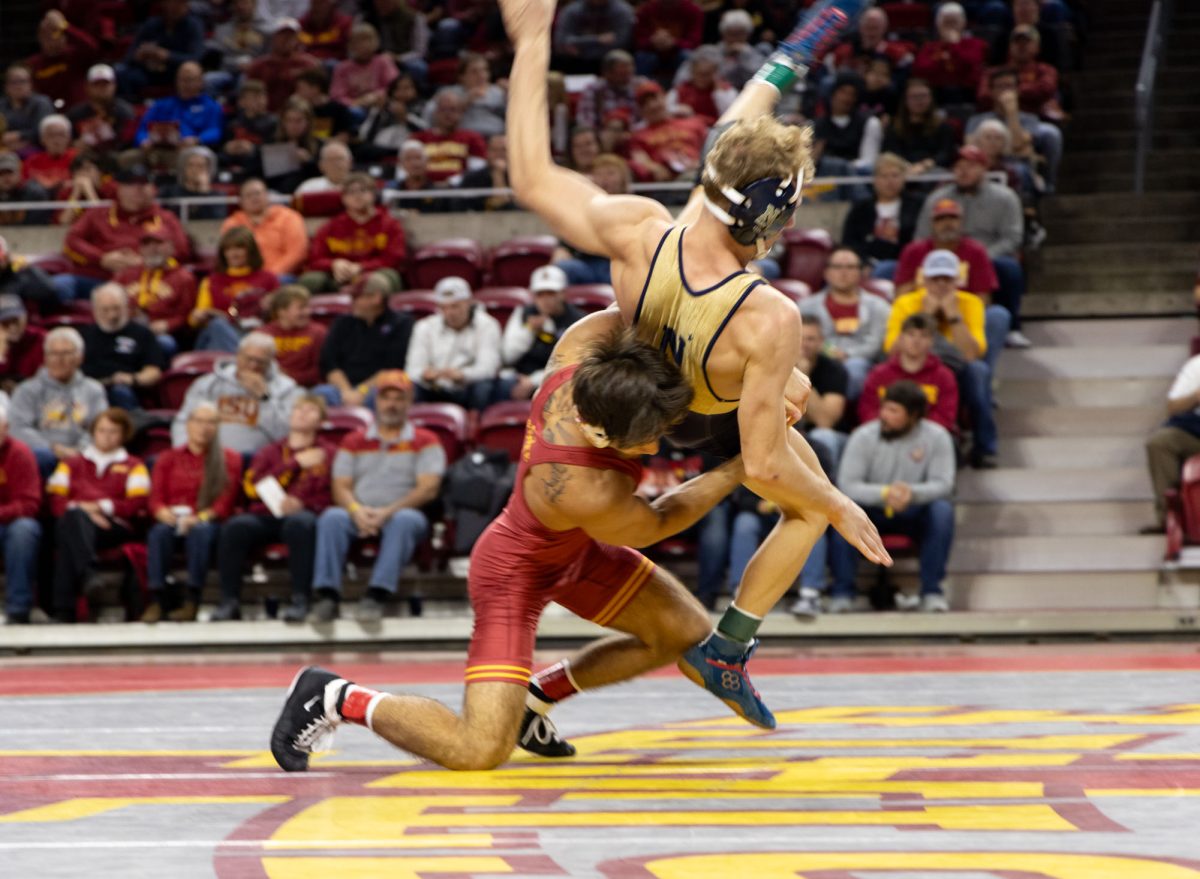Parenting is a dying art in America
April 11, 1996
Is there any greater responsibility than that of being a parent?
I say no.
Bringing a new person into the world and rearing him or her to be a healthy, happy, stable and productive citizen is not only important for the child, but for society in general.
It’s a responsibility so great that it scares me into hiding under the bed like a scared six-year-old child — and I consider myself to be a shockingly responsible person.
But many people in this country don’t seem to feel that way, and we are all suffering for it.
Good parenting is a dying art in this country. People want to have everything: a career, hobbies, children. Unfortunately, the three aren’t always fully compatible, and the children almost always suffer.
Their focus should be on their children and what is best for them, but that is not always the case.
Why do people want to have children? The reasons are many and varied, but only rarely is the decision made after considering the critical element of responsibility.
Some people want to feel fulfilled, and they feel that bringing up a child will help them do so.
Some want to carry on their family’s name or traditions. Some do it because, well, it’s the thing to do.
Do any of these reasons really hold up when the question of responsibility is brought in? No, they do not.
I’m not talking just about the basic responsibility of providing a child with food, clothing and shelter, even though some parents do not even take those most basic requirements into account.
I’m talking about guiding the child, spending time with the child, and always being available for the child to keep him or her on the right path in life.
I’m talking about providing an example for the child to see, in actions the child can witness first-hand.
For that to happen, a parent has to be present in the home, with the child, or there for the child to contact if necessary.
I’m talking about taking the child’s needs and interests into account over everything else, over the personal needs or desires of the parents.
That is what it takes to properly bring up a child — a 100-percent commitment to the child’s well-being, not just materially, but in terms of providing psychological support and a feeling of security, not to mention solid guidance through the daily minefield encountered in life.
That’s why, at this point, I don’t ever want any kids, because I have to take care of my own needs first.
Maybe children will enter the picture later in my life. Much later.
Of course, many of you are saying, “What self-respecting woman would want to have children with that big, mean, ugly bastard anyway?” A valid point indeed, I must say.
But back to our topic. Even the best people can forget their overwhelming responsibility to their children, as I saw first-hand growing up. And the consequences can be very hard when that responsibility is forgotten.
A family I knew provides a prime example of parents forgetting their ultimate responsibility to their kids.
I went to junior high and high school in Papillion, Neb., areas of which were dominated by Air Force officers and veterans in the 1980s.
The father was a very successful Air Force officer, at work for 10 to 12 hours a day, five days a week, when his duties were light.
He made a nice salary from his position, more than enough to provide well for the family — if they had decided to live on-base, where the housing is free if not luxurious.
But they wanted to live off-base, and they bought a rather nice home in an upper-middle class subdivision.
Living off-base and taking on a big mortgage required the mother to work.
Not that I’m at all against women in the work force, or against working mothers in general. But this family had two boys entering junior high and high school — an age where kids need a ton of support, whether they want to admit it or not — and mom wanted new careers, not just a job.
So, the kids were left without any real support at home — not from the father or the mother. Their parents were always gone.
Dad was at the base or at some official function after office hours and was almost never available. Mom was out hawking real estate at all hours of the day and had little time for the children.
The results were nearly disastrous. I saw a good friend slide into a life that included alcoholism and drug abuse.
This was a boy who could have become someone great. He was smart, athletic and had considerable energy, all of which were wasted.
His younger brother was in even more trouble. He was moving toward a life as a petty criminal when I left Papillion, and had run away from home a few times.
When the hard choices in life had to be made, when hard questions came up that they could not answer, there was no one there to guide these two boys properly, no tangible example to be followed, no one to give them real support when things got difficult.
These people satisfied their kids’ material needs well, but they forgot that it takes more than that to have a child succeed in life at any level. It takes a greater commitment.
A greater responsibility.
Kevin S. Kirby is a senior in journalism mass communication from Louisville. He has a B.A. in political science from the University of Wyoming.






